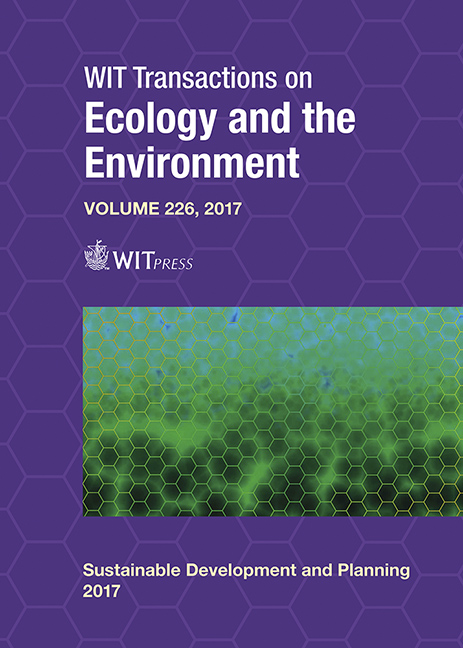INTEGRAL ADAPTATION TO CLIMATE CHANGE IN COASTAL ZONES: OPPORTUNITIES AND LIMITS – RIOLAGARTOS BIOSPHERE RESERVE, YUCATÁN, MÉXICO
Price
Free (open access)
Transaction
Volume
226
Pages
10
Page Range
773 - 782
Published
2017
Size
488 kb
Paper DOI
10.2495/SDP170671
Copyright
WIT Press
Author(s)
BERTHA NELLY CABRERA-SÁNCHEZ, JOEL F. AUDEFROY, MILTON MONTEJANO-CASTILLO, HÉCTOR MANUELGALVÁN-ALCOCER
Abstract
Climate change on the planet is irreversibly affecting all continents to a greater or lesser extent. Consequently, populations settled in rural, urban and coastal areas must undergo an inevitable adaptation process due to the risks and vulnerabilities that prevail in each region. However, adaptation opportunities in coastal zones are shaped by social, economic and environmental problems that influence local adaptation capacity. In this research, the analyzed case study comprises the communities located along the Rio Lagartos Biosphere Reserve, in Yucatán, México, where habitability conditions have been seriously threatened by climate change affecting local dwellings, the natural landscape, urban equipment and infrastructure, among others. As a result of this research, the effects of such threats were identified and sustainable development indicators are suggested as part of a more integral approach for policy makers to promote adaptation and reinforce the habitability conditions of coastal, rural and urban areas. The incorporation of strategies for optimizing resources to make local livelihoods more efficient and sustainable should be part of such policy agenda.
Keywords
integral adaptation, risk, sustainable development indicators, habitability





